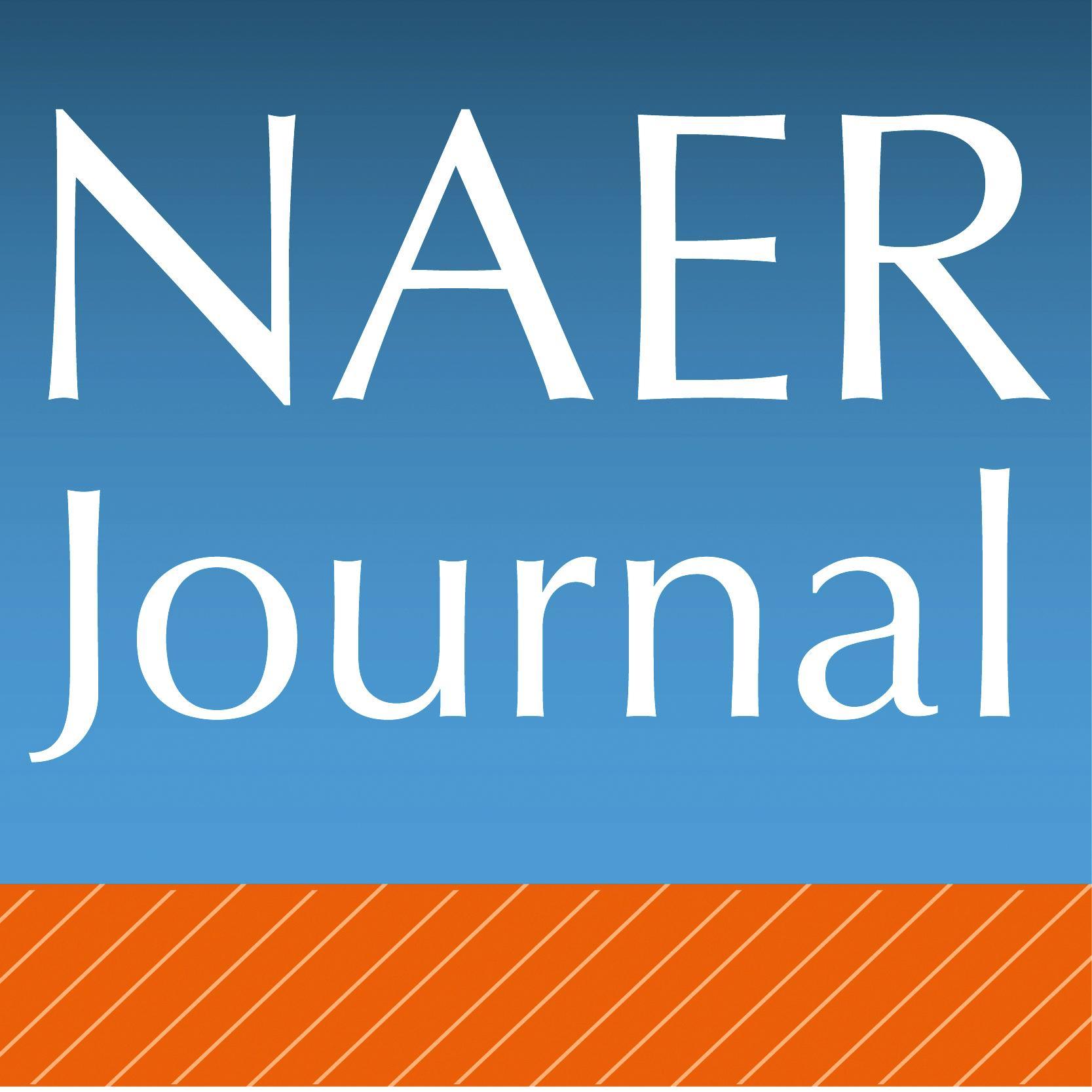Perspectivas docentes sobre uso y efectividad de recursos TIC para promocionar el aprendizaje colaborativo, la creatividad y el espíritu emprendedor
Resumen
Las pedagogías emergentes presentan al docente como diseñador de actividades de aprendizaje enriquecidas con las Tecnologías de la Información y Comunicación (TIC) siendo sus habilidades determinantes a la hora de llevar estas actividades a la práctica. Por esta razón, la Competencia Digital Docente ligada con las actitudes del profesorado respecto al nivel de efectividad de las técnicas utilizadas para la promoción de competencias clave en la actualidad como el aprendizaje colaborativo, la creatividad o el espíritu emprendedor a través de los recursos tecnológicos, se presentan como factores fundamentales a la hora de analizar el uso de estas herramientas con fines educativos. Por tanto, el propósito del presente estudio es el análisis del uso que se hace de los recursos TIC por parte del profesorado para la promoción del aprendizaje colaborativo, la creatividad y el espíritu emprendedor, así como el grado de efectividad que los docentes otorgan a las herramientas tecnológicas utilizadas en el aula. Para ello, se ha realizado una encuesta a docentes de Educación Primaria y Secundaria, en el contexto de la región de Murcia (España). Los resultados obtenidos muestran que los recursos tecnológicos utilizados suelen enfocarse más al fomento de la creatividad y el trabajo colaborativo, quedando el emprendimiento en un segundo plano. En cuanto a las percepciones del profesorado en relación con el nivel de efectividad de los recursos tecnológicos utilizados, se observa que éstos consideran que las herramientas tecnológicas usadas en el aula fomentan en gran medida el aprendizaje colaborativo y la creatividad y, en menor medida, el espíritu emprendedor. De entre las conclusiones se extraen la importancia del papel del profesorado como facilitador del conocimiento a través de las TIC y su preparación pedagógica, tecnológica y cognitiva como factores que determinan el éxito del fomento de estas habilidades en la escuela.
Descargas
Citas
Area, M. (2011). Las políticas de un “ordenador por niño” en España. Visiones y prácticas del profesorado ante el programa Escuela 2.0. Un análisis comparado entre comunidades autónomas. Ministerio de Ciencia e Innovación.
Area, M., Alonso, C., Correa, J. M., Moral, M. E. De Pablos, J. D., Paredes, J. ... & Valverde, J. (2014). Las políticas educativas TIC en España después del Programa Escuela 2.0: las tendencias que emergen. RELATEC: Revista Latinoamericana de Tecnología Educativa, 13 (2), 11-34. https://doi.org/10.17398/1695-288X.13.2.11
Arruti, A. (2016). El desarrollo del perfil del Teacherpreneur o profesor-emprendedor en el currículum del Grado de Educación Primaria: ¿un concepto de moda o una realidad?. Contextos Educativos, 19, 177-194. https://doi.org/10.18172/con.2770
Bacigalupo, M., Kampylis, P., Punie, Y. & Van den Brande, G. (2016). EntreComp: The Entrepreneurship Competence Framework. Publication Office of the European Union. https://doi.org/10.2791/593884
Barab, S.A., Hay, K.E., Barnett, M. & Squire, K. (2001). Constructing Virtual Worlds: Tracing the Historical Development of Learner Practices. Cognition and Instruction, 19(1), 47-94. https://doi.org/10.1207/S1532690XCI1901_2
Barkley, E.F., Cross, K.P. & Major, C.H. (2007). Técnicas de aprendizaje colaborativo: Manual para el profesorado universitario. Ministerio de Educación y Ciencia. Ediciones Morata.
Barnes, N., Fives, H. & Dacey, C. (2017). U.S. teachers’ conceptions of the purposes of assessment. Teaching and Teacher Education, 65, 107-116. http://dx.doi.org/10.1016/j.tate.2017.02.017
Basilotta, V. & Herrada, G. (2013). Aprendizaje a través de proyectos colaborativos con TIC. Análisis de dos experiencias en el contexto educativo. EDUTEC, Revista Electrónica de Tecnología Educativa, 44. https://doi.org/10.21556/edutec.2013.44.324
Briasco, I. (2016). El desafío de emprender en el siglo XXI: Herramientas para desarrollar la competencia emprendedora. Narcea Ediciones.
Bond, M. (2021). Schools and emergency remote education during the COVID-19 pandemic: A living rapid systematic review. Asian Journal of Distance Education, 15 (2), 191-147. https://doi.org/10.5281/zenodo.4425683
Casanova, O. & Serrano, R.M. (2016). Internet, tecnología y aplicaciones para la educación musical universitaria del siglo XXI. REDU: Revista de docencia Universitaria, 14(1), 405-421. http://dx.doi.org/10.4995/redu.2016.5801
Castañeda, L., Salinas, J. & Adell, J. (2020). Hacia una visión contemporánea de la Tecnología Educativa. Digital Education Review, 37. https://doi.org/10.1344/der.2020.37.240-268
Colas-Bravo, P., De Pablos-Pons, J. & Ballesta-Pagan, J. (2018). Incidencia de las TIC en la enseñanza en el sistema educativo español: una revisión de la investigación. RED. Revista de Educación a Distancia, 56. http://dx.doi.org/10.6018/red/56/2
Comisión Europea (2012). Plan de acción sobre emprendimiento 2020. Relanzar el espíritu emprendedor en Europa. https://bit.ly/3Dinqbi
Comisión Europea (2013). Entrepreneurship Education: A Guide for Educators. https://doi.org/10.2769/51003
Comisión Europea (2020). Digital Education Action Plan 2021-2027: Resetting education and training for the digital age. https://bit.ly/3HqB3YA
Di Serio, Á., Ibáñez, M.B. & Kloos, C.D. (2013). Impact of an augmented reality system on students' motivation for a visual art course. Computers & Education, 68, 586-596. http://dx.doi.org/10.1016/j.compedu.2012.03.002
Fernández, T. (2012). Aprendizaje colaborativo y uso de las redes sociales en educación primaria. Revista Didáctica. Lengua y Literatura, 25, 157-187. https://doi.org/10.5209/rev_DIDA.2013.v25.42240
Fernández, F.J., Fernández, M.J. & Rodríguez, J.M. (2018). El proceso de integración y uso pedagógico de las TIC en los centros educativos madrileños. Educación XX1, 21(2), 395-416. https://doi.org/10.5944/educxx1.17907
Gibb, A. (2008). Entrepreneurship and Enterprise Education in Schools and Colleges: Insights from UK Practice. International Journal of Entrepreneurship Education, 6, 1-48. https://bit.ly/3qFV3jJ
Hermans, R., Tondeur, J., Braak, J. & Valcke, M. (2008). The impact of primary school teachers’ educational beliefs on the classroom use of computers. Computers & Education, 51, 1499-1509. https://doi:10.1016/j.compedu.2008.02.001
Iborra, A., & Izquierdo, M. (2010). ¿Cómo afrontar la evaluación del aprendizaje colaborativo? Una propuesta valorando el proceso, el contenido y el producto de la actividad grupal. Revista General de Información y Documentación, 20, 221-241. https://bit.ly/3kFWvyR
INTEF (Ed.) (2017). Marco Común de Competencia Digital Docente. https://bit.ly/2RdzMOW
König, J. & Blömeke, S. (2012). Future Teachersö General Pedagogical Knowledge from Comparative Perspective. Does School Experience Matter? ZDM Mathematics Education, 44, 341-354. https://doi.org/10.1007/s11858-012-0394-1
Ley Orgánica 8/2013, de 9 de diciembre, para la mejora de la calidad educativa. Boletín Oficial del Estado, 295, de 10 de diciembre de 2013, 97858-97921. https://bit.ly/3Ci48BM
Losada, D., Correa, J. M. & Fernández, L. (2017). El impacto del modelo «un ordenador por niño» en la Educación Primaria: Un estudio de caso. Educación XX1, 20(1), 339-361. https://doi.org/10.5944/educxx1.17515
Loveless, A., Burton, J. & Turvey, K. (2006). Argumentation, computer support, and the educational context of confronting conditions. Thinking Skills and Creativity, 1, 3–13. https://doi.org/10.1016/j.tsc.2005.07.001
Marín, S. & Moreno, I. (2007). La educación y el espíritu emprendedor. En Ministerio de Educación y Ciencia. Instituto Superior de Formación del Profesorado. Las competencias profesionales relacionadas con las TIC (pp. 9-68). Secretaría General Técnica.
Miralles, P., Gómez, C.J. & Monteagudo, J. (2019). Percepciones sobre el uso de recursos TIC y «mass-media» para la enseñanza de la historia. Un estudio comparativo en futuros docentes de España-Inglaterra. Educación XX1, 22(2), 187-211. https://doi.org/10.5944/educXX1.21377
Prestridge, S. (2012). The beliefs behind the teacher that influences their ICT practices. Computers & Education, 58(1), 449-458. https://doi.org/10.1016/j.compedu.2011.08.028
Redecker, C. & Punie, Y. (2017). European Framework for the Digital Competence of Educators: DigCompEdu. Publications Office of the European Union. http://dx.doi.org/10.2760/178382
Salinas, J. (2020). Educación en tiempos de pandemia: tecnologías digitales en la mejora de los procesos educativos. Innovaciones educativas, 22 suppl.1. http://dx.doi.org/10.22458/ie.v22iespecial.3173
Sarracino, F. (2014). ¿Mejora la realidad aumentada el aprendizaje de los alumnos? Una propuesta de experiencia de museo aumentado. Profesorado. Revista de currículum y formación del profesorado, 18(3), 1-18. https://bit.ly/30wtXRB
Sosa, M. J., & Valverde, J. (2017). Las macro-políticas educativas y el Proyecto de Educación Digital para la integración de las tecnologías desde la visión del profesorado. Revista de Educación a Distancia (RED), (53). https://bit.ly/3osj3o1
Tondeur, J., Braak, J., Ertmer, P. & Ottenbreit-Leftwich, A. (2017). Understanding the relationship between teachers’ pedagogical beliefs and technology use in education: A systematic review of qualitative evidence. Educational Technology Research and Development, 3, 555-575. http://dx.doi.org/10.1007/s11423-016-9481-2
Valiente, O. (2011). Los modelos 1:1 en educación. Prácticas internacionales, evidencia comparada e implicaciones políticas. Revista Iberoamericana de Educación, 56, 113-134. https://doi.org/10.35362/rie560513
Valverde, J. (2012). Políticas educativas en tecnología educativa: el papel de la investigación y la autonomía del centro en la toma de decisiones. Campus Virtuales, 1(1). https://bit.ly/3qDKWvX
Valverde, J., Garrido, M.C. & Sosa, M.J. (2010). Políticas educativas para la integración de las TIC en Extremadura y sus efectos sobre la innovación didáctica y el proceso enseñanza-aprendizaje: la percepción del profesorado. Revista de Educación, 352, 99-124. https://bit.ly/3kDoaRd
Derechos de autor 2021 Eulalia Blázquez García, Victoria Marín Juarros

Esta obra está bajo una licencia internacional Creative Commons Atribución-NoComercial-CompartirIgual 4.0.
Aquellos autores que tengan publicaciones con esta revista aceptan los términos siguientes :
-
Los autores conservarán sus derechos de autor y garantizarán a la revista el derecho de primera publicación de su obra, el cuál estará simultáneamente sujeto a la Licencia Creative Commons Atribución no comercial compartir por igual 4.0 Internacional que permite compartir, copiar y redistribuir el material en cualquier medio o formato y adaptar, remezclar, transformar y construir sobre el material en los siguientes términos:
Reconocimiento - Debe dar el crédito apropiado, proporcionar un enlace a la licencia, e indicar si se han realizado cambios. Puede hacerlo de cualquier manera razonable, pero no de una manera que sugiere que el licenciante o su uso hace suya. No comercial - No puede utilizar el material con fines comerciales. Compartir bajo la misma - Si remezcla, transformar o crear sobre el material, se debe distribuir sus contribuciones bajo la misma licencia que el original. -
Los autores podrán adoptar otros acuerdos de licencia no exclusiva de distribución de la versión de la obra publicada (p. ej.: depositarla en un archivo telemático institucional o publicarla en un volumen monográfico) siempre que se indique la publicación inicial en esta revista.
-
Se permite y recomienda a los autores difundir su obra a través de Internet (p. ej.: en archivos telemáticos institucionales o en su página web) antes y durante el proceso de envío, lo cual puede producir intercambios interesantes y aumentar las citas de la obra publicada. (Véase El efecto del acceso abierto).
-
En cualquier caso, el Equipo Editorial entiende que las opiniones vertidas por los autores son de su exclusiva responsabilidad.

















